The Physics in Industry lecture series invites physicists to give a talk on their career and how they use physics for their work. There is usually a social before or following the talk, providing an opportunity to meet the speaker and network with fellow students and academic staff.
Physics in Industry Lecture Series
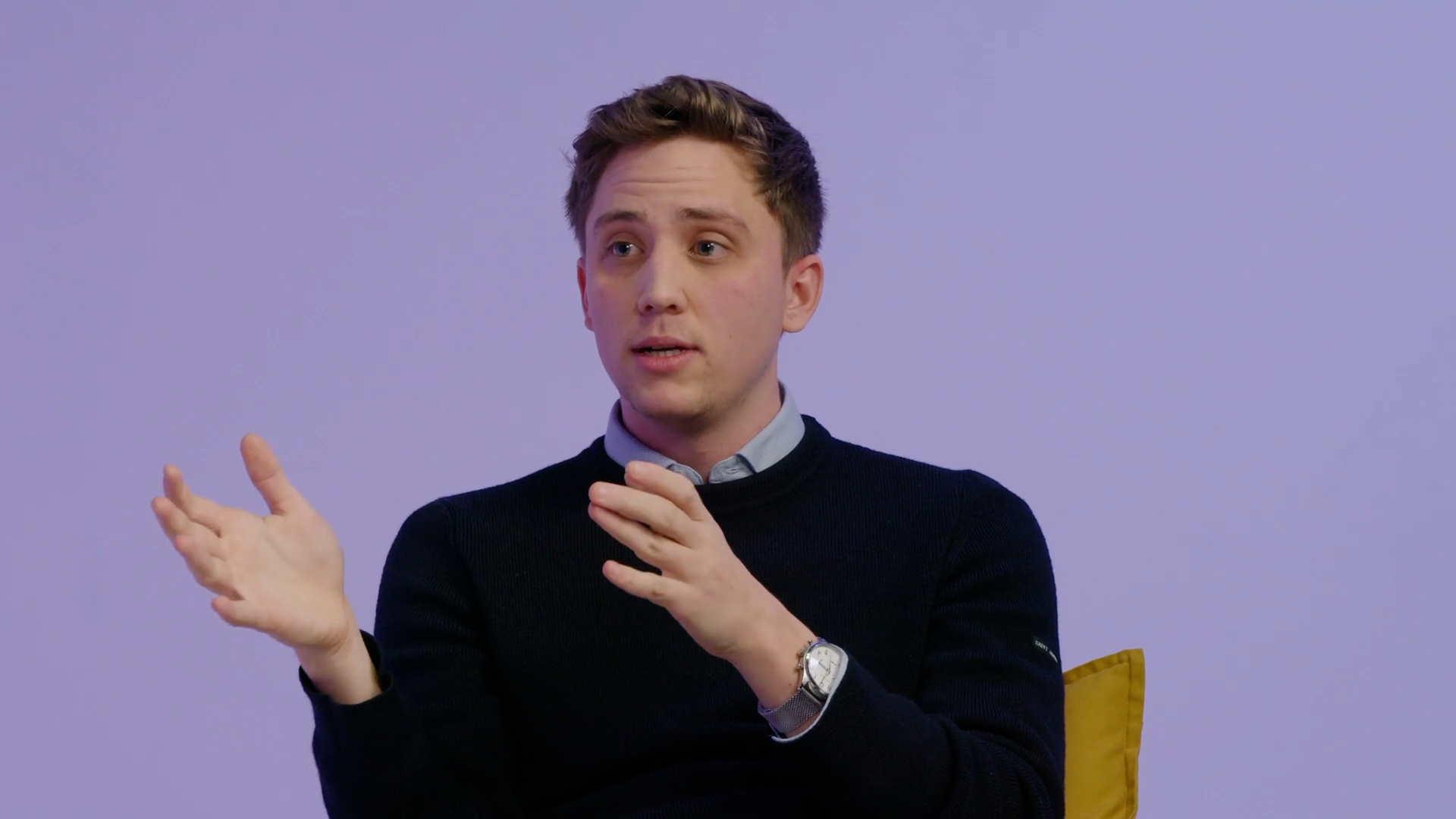 Talk Title: Nuclear Fusion: The Promises and Progress of Science's Greatest Challenge
Talk Title: Nuclear Fusion: The Promises and Progress of Science's Greatest Challenge
Date: 17 October 2024 at 17:00
Location: Blackett Lecture Theatre 1
Speaker: Cyd Cowley, Digilab
Abstract: Nuclear fusion represents one of the most phenomenal visions dreamt up by humankind: to harness the power of the stars and deliver safe clean energy for all. However, it's also one of the longest-running scientific challenges, with a myriad of technical and socio economic challenges in the way of an economic fusion power-plant. In this talk, Dr. Cyd Cowley will take you through the biggest hurdles facing the field of fusion, from plasma physics to magnet quenching. Alongside the physics, Cyd will discuss his experience from an undergraduate at Imperial to being at the cutting edge of fusion, and why fusion needs the next generation of talented scientists.
Biography: Dr. Cyd Cowley is an alumni of Imperial College, having spent four years here completing an integrated Masters in Physics. After Imperial, Cyd obtained a PhD at the York Plasma Institute, working in partnership with the Culham Centre for Fusion Energy. He has published several works on exhaust physics in tokamaks, and has collaborated with Commonwealth Fusion Systems, MIT, and the STEP programme. Cyd now works for the machine learning company digiLab applying AI and machine learning to solve challenges in fusion. He produces educational and consultancy resources for the Fusion Industry Association and Fusion Energy Insights.
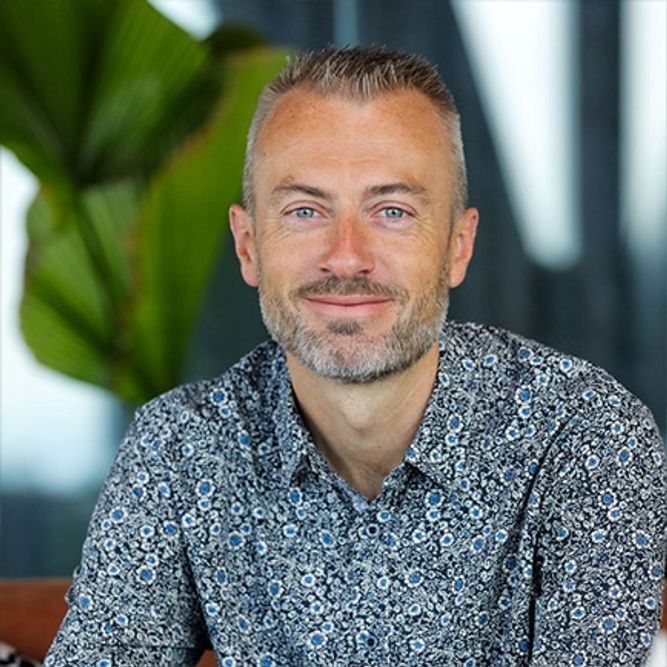 Talk Title: The role of science (and scientists) and innovation in developing a climate-resilient future
Talk Title: The role of science (and scientists) and innovation in developing a climate-resilient future
Date: 7 November 2024 at 17:00
Location: Blackett Lecture Theatre 1
Speaker: Greg De Temmerman, Quadrature Climate Foundation
Abstract: We live in an interesting (and unsettling) paradox: our understanding of climate change and its consequences (but also of the environmental challenges in general) comes from decades of scientific research. We know that fossil fuels are at the core of the problem, we have a very good understanding of the consequences of their continued use, and yet we still haven’t started to phase them out (although we might see a peak in their use soon). And, perhaps worse, we still have many policies which are not aligned with our understanding of the problem.
Yet we do not have all the solutions we need and a lot of research/development and innovation is still needed to fully decarbonise our economy- science and scientists are key to get those solutions off the ground and developed at the required speed and scale.
The role of scientists can (should?) go beyond pure research/science work and this is what we’ll explore through the lens of my work trajectory from fundamental research to climate philanthropy.
Biography: Greg is the Deputy CEO and Chief Science Officer at the Quadrature Climate Foundation (QCF), where he leads the Science and Evidence, and Programmes teams. He is responsible for identifying new opportunities for deploying philanthropic capital and managing QCF's portfolio. Greg holds a PhD in experimental physics from the University of Basel and an MSc in chemistry. With over 15 years of experience in academic research, his work has primarily focused on plasma physics and materials processing, particularly the behaviour of materials under extreme conditions, with applications in nuclear fusion.
From 2014 to 2020, Greg served as a scientific coordinator on the ITER project, the largest and most complex scientific project in the world. In 2020, he became the Managing Director of Zenon Research, a Paris-based think tank that analyses emerging trends in technological innovations required to achieve net zero emissions. He was among the first advocates for Carbon Dioxide Removal (CDR) in France.
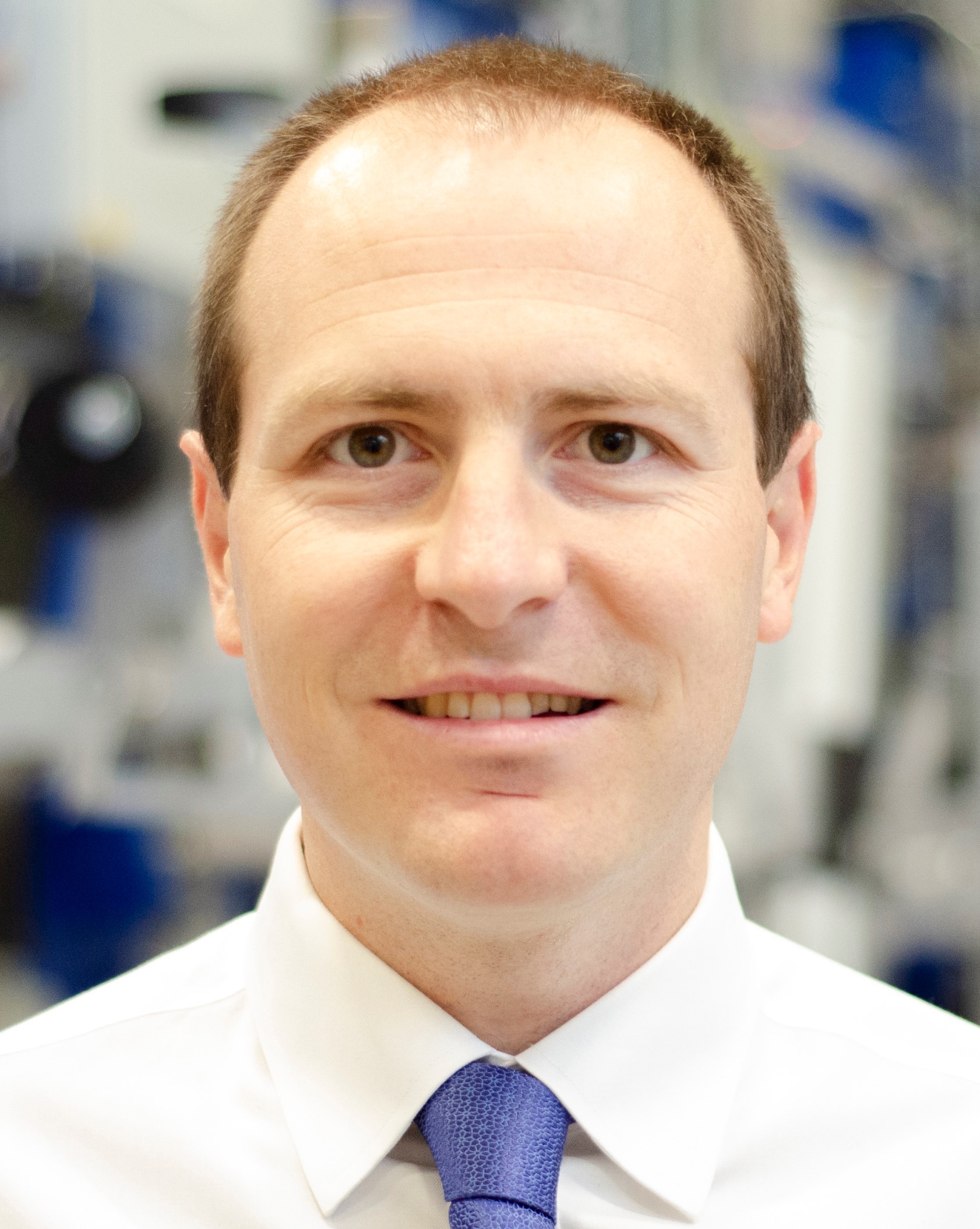 Talk Title: TBC
Talk Title: TBC
Date: 16 January 2025 at 17:00
Location: Blackett Lecture Theatre 1
Speaker: Ian Chapman, UKAEA
Biography: Sir Ian Chapman became CEO of the UK Atomic Energy Authority in October 2016. He has held a number of international roles in fusion, currently including chairing the IAEA International Fusion Research Committee. His research has been recognised with a number of international awards, including the Institute of Physics Paterson Medal in 2013, the American Physical Society Stix Award in 2017, the Royal Society Kavli Medal in 2019 and the Institute of Physics Glazebrook Medal for leadership in 2021. He was made a Fellow of the Institute of Physics in 2013, became a visiting Professor at Durham University in 2015, elected as a Fellow of the Royal Academy of Engineering in 2022. In 2023, he was knighted in the King’s New Year’s Honours, made an Honorary Fellow of the Nuclear Institute and elected a Fellow of the Royal Society.
20 February 2025 at 17:00
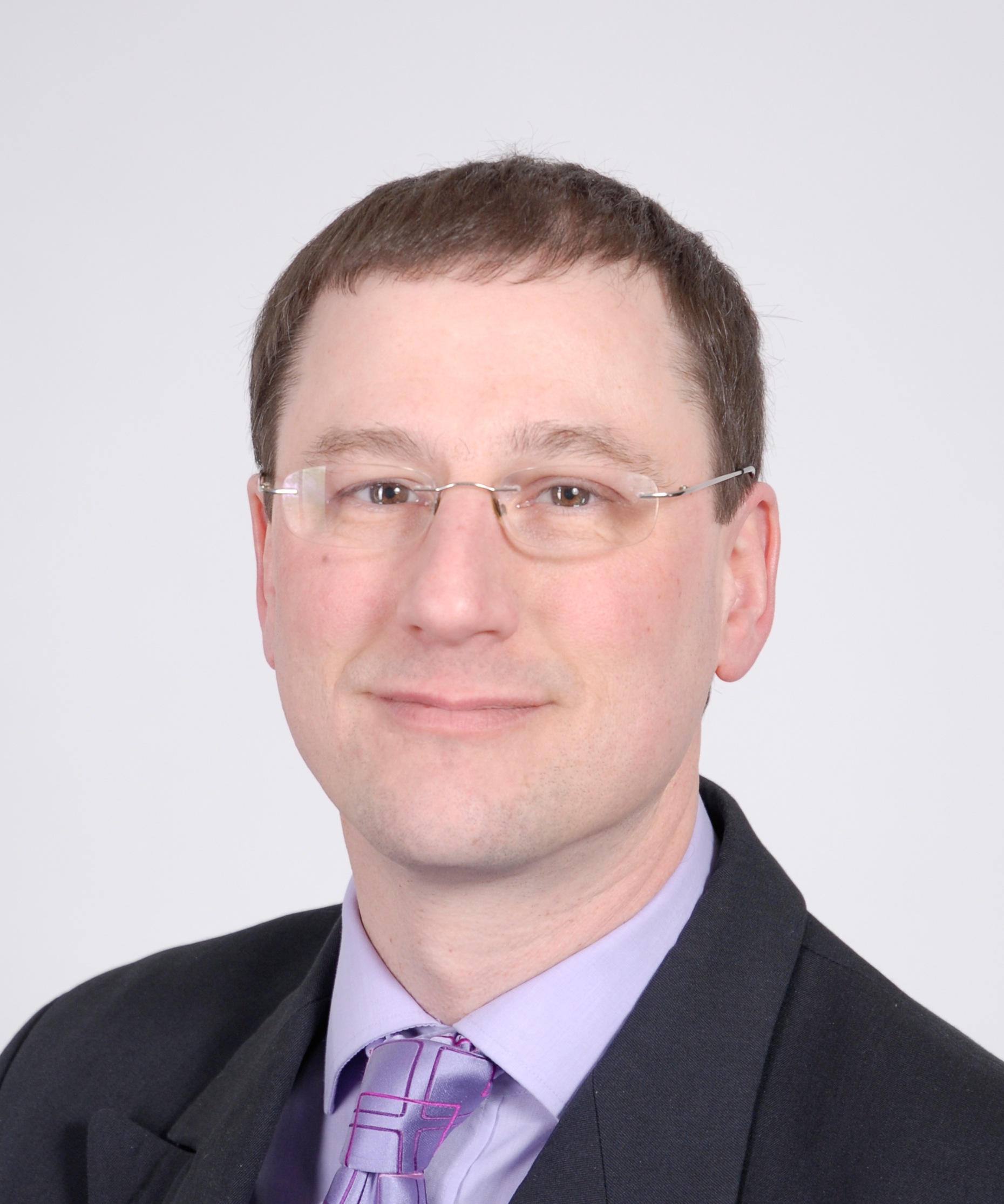
Date: 16 November 2023 at 17:00 (GMT)
Location: Blackett Lecture Theatre 1
Speaker: Dr Peter Gould
Abstract: Physics is an ideal basis for predicting information and the physicist gets trained in the skills necessary to perform that task: basic principles, estimation of quantities, error analysis. I hope to illustrate that the information predicted also has to be useful by sharing some examples from my career. I will indicate how this is constrained and helped by my particular part of the Defence sector. I will touch upon some techniques such as machine learning that obscure method and emphasise that clarity of thought is always beneficial. Many challenges still remain.
Biography: Peter Gould PhD CEng FIM3 has 35 years’ experience in the measurement, analysis and prediction of material properties. He qualified in Physics and did a PhD and post-doctoral work in materials science before joining QinetiQ. He specialises in the development of models that predict the physical and mechanical properties of materials as well as their use in numerical simulation tools, particularly where data are lacking.
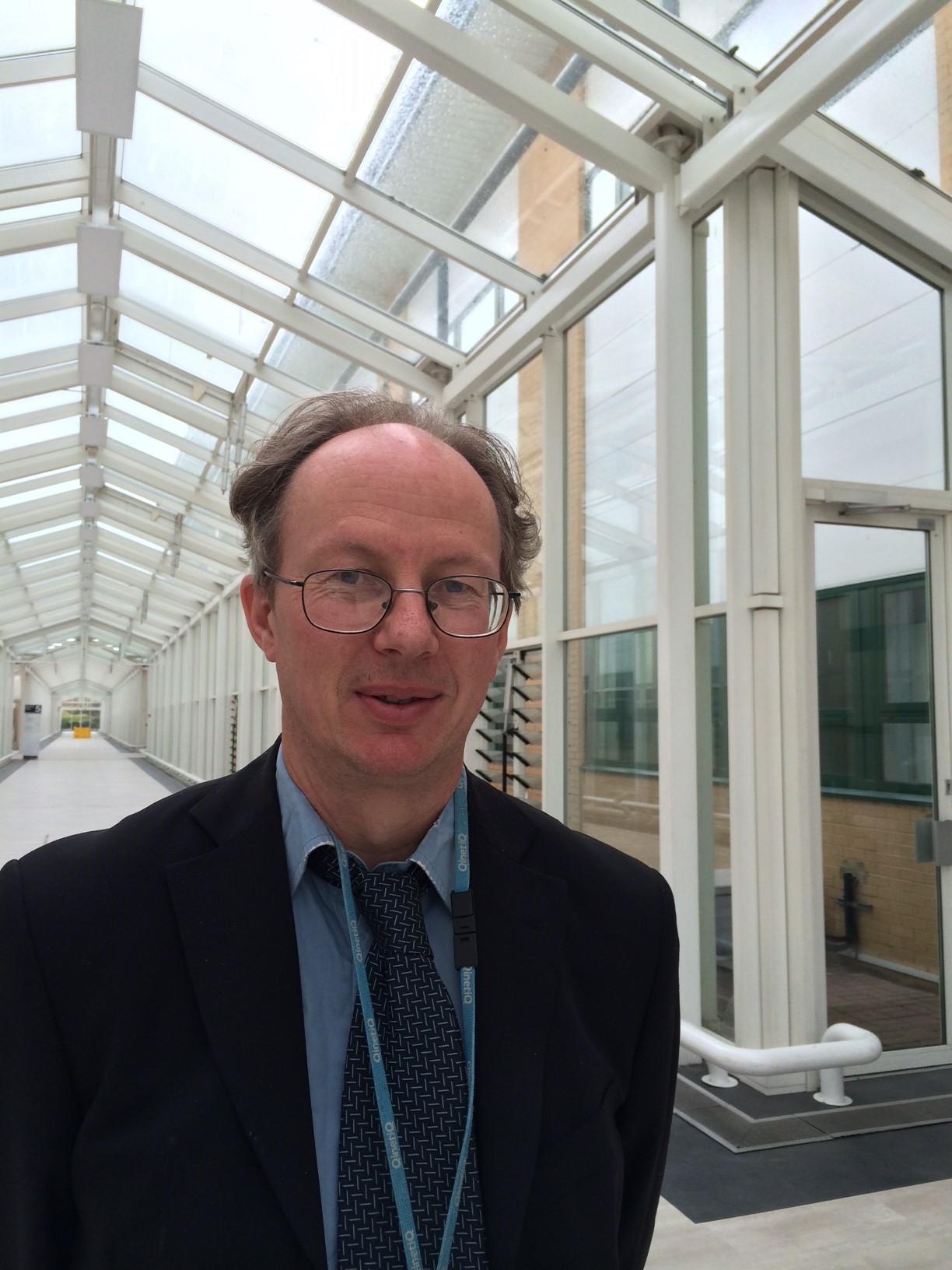
Date: 15 February 2024 at 17:00 (GMT)
Location: Blackett Lecture Theatre 1
Speaker: Philip Church
Abstract: I will outline my career journey from civil servant in RARDE, through DRA and QinetiQ and illustrate with two technical case studies what I have achieved and what is possible for graduates in QinetiQ.
Biography: Graduated in Physics (HONs 1st) at Salford University and joined RARDE in 1982. Specialises in developing, implementing and validating material models for high strain rate and shock behaviour for hydrocodes. Has Technically Led many MoD and Civil Programmes and published many scientific papers.
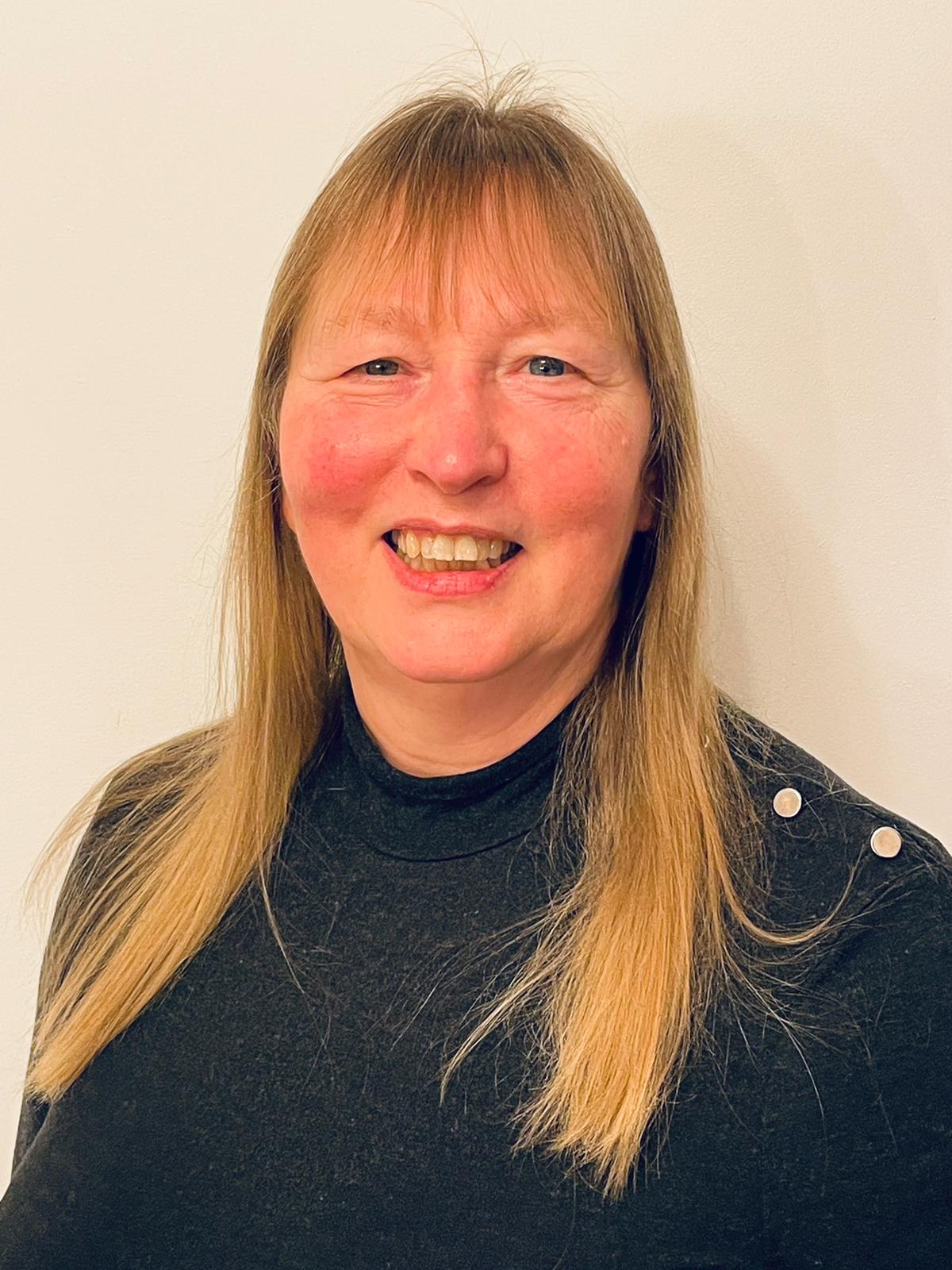 Talk Title: My Journey in Programmable Logic
Talk Title: My Journey in Programmable Logic
Date: 3 November 2022 at 17:00 (GMT)
Location: Live on Zoom
Speaker: Dr. Carol Marsh OBE CEng
Abstract: Join Carol for this presentation where she will introduce you to programmable logic, talk about her journey as an engineer, and the surprising outcomes of being an engineer.
Biography: Dr Carol Marsh has worked in the field of electronics for over 35 years, specializing in programmable logic. She is the Head of Digital Systems at Celestia-UK, a Visiting Professor at Edinburgh Napier University and a volunteer for the Institution of Engineering and Technology (IET), where she is the Chair of the Council, Chair of the Engineering Policy Group Scotland, a Fellow Advisor and a Professional Registration Advisor and Interviewer. She is also Past President of the Women’s Engineering Society.
Carol graduated with an HND in Electrical and Electronic Engineering from Edinburgh Napier University in 1985 and was awarded a degree in Doctor of Engineering in System Level Integration from the Universities of Glasgow, Edinburgh, Heriot-Watt and Strathclyde in 2011.
A winner of 7 technology and diversity awards, Carol is passionate about prompting engineering and in 2020 was awarded an OBE for Diversity and Inclusion in Electronic Engineering.
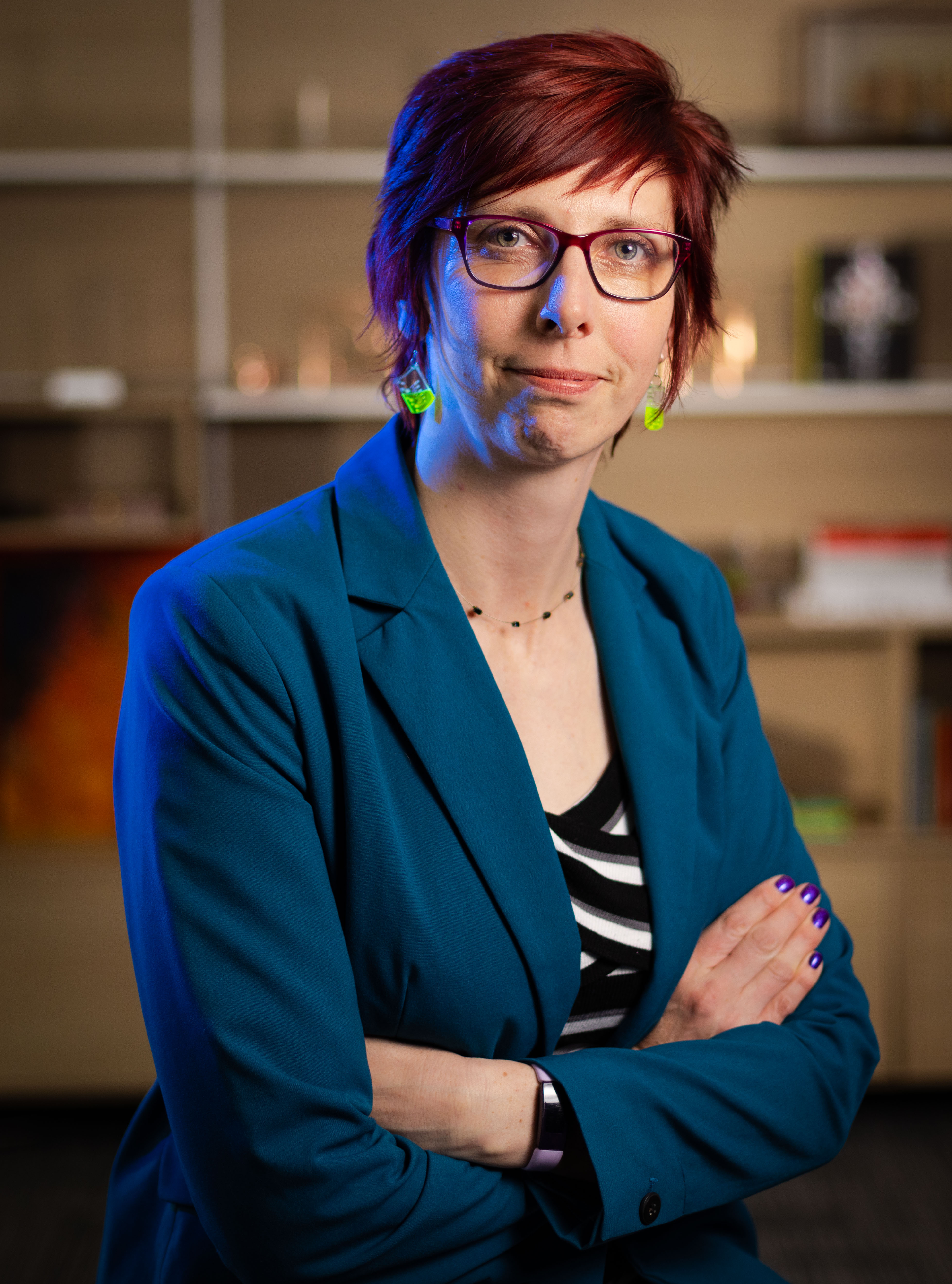 Talk Title: My career in science and the challenges I face
Talk Title: My career in science and the challenges I face
Date: 17 November 2022 at 17:00 (GMT)
Location: Blackett Lecture Theatre 1
Speaker: Dr Ruth Pettifer
Abstract: Ruth knew she wanted to be a scientist when she was at primary school and her idea of an exciting birthday outing was a trip to Launch Pad at the Science Museum. After flirting with the idea of studying Food Science following a work experience placement at Coca-Cola, she remains glad she was persuaded to study Chemistry instead whilst attending an University of Leeds open day. Ruth spent four years at Leeds with a year in Industry with Nestle which was a happy compromise and she didn't realise at the time that the analytical skills acquired during that year would set up 19 years doing energetics materials analysis at QinetiQ Fort Halstead. During those 19 years Ruth did a PhD from 2010 - 2013 which was awarded by Imperial College London and she developed her passion for finding more modern techniques for analysing energetic materials. Along the way there were many highs, lows and challenges which Ruth will discuss during the talk.
Biography: Ruth Pettifer is a Scientific Adviser (Head Office) for the UK MOD. Prior to joining the MOD in September 2022, Ruth spent 19 years at QinetiQ where she was a Senior Principal Scientist – Energetics and a QinetiQ Senior Fellow.
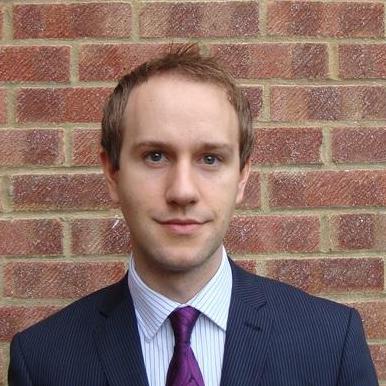 Talk Title: Tokamak Energy's lithium technology development - from divertors to tritium recovery
Talk Title: Tokamak Energy's lithium technology development - from divertors to tritium recovery
Date: 1st December 2022 at 17:00 (GMT)
Location:
Speaker: Dr. Peter Buxton
Abstract: Tokamak Energy Ltd. is a private company based in Oxfordshire. Its mission is the development and commercialisation of fusion energy for all. Recently the compact ST40 spherical tokamak has achieve 100M degrees Celsius thermal ion temperature, and a prototype high temperature superconducting (HTS) magnet has demonstrated >20T on conductor. Work is now underway to design the next step tokamak, ST80-HTS, which will combine the spherical tokamak topology with HTS magnet technology. ST80-HTS will advance both the spherical tokamak physics and engineering bases before the design of a fusion pilot plant, ST-E1.
Traditionally, the tokamak’s plasma facing components have been made from solid materials, with carbon proving particularly effective at producing high-performance plasmas. However, carbon has the unfortunate characteristic of absorbing and retaining large quantities of tritium, which would not be compatible with the inner tritium fuel cycle within a commercial fusion power plant. This motivated the development of solid all-metal tokamaks, with tungsten the leading metal. However, operating with tungsten is challenging, both technologically (fuzz, erosion and redeposition, melting, dust, nuclear embrittlement, and cracking), and in achieving plasma performance because even a small amount of tungsten pollution will radiate significant power from the core (see e.g. [1] and references therein). A potential alternative is to use liquid lithium as the plasma facing material, which has been shown to improve the plasma performance on numerous tokamaks (TFTR, LTX, EAST), by increasing the thermal energy confinement time, allowing ELM free operation, which can result in higher stored energy. Lithium also has the potential to solve some pilot plant challenges such as off-normal power handling and helium exhaust. However, there has always been a question as to whether lithium is pilot plant compatible, because of its evaporation under continuous power, tritium recovery timescale, and safety. In this talk we give an overview of the work being done at Tokamak Energy to advance liquid lithium technology towards a commercial fusion plant.
[1] A. de Castro, C., Moynihan, S. Stemmley, M. Szott, D.N. Ruzic, Lithium, a path to make fusion energy affordable. Phys. Plasmas 28, 050901, 2021.
Biography: Dr Peter Buxton senior physicist at Tokamak Energy Ltd. Peter studied undergraduate physics at Imperial College London and did his PhD at the University of York. At York Peter’s PhD focused on theoretical modelling of a plasma instability called the “ballooning instability”. This instability is thought to be involved in triggering Edge Localised Modes (ELMS) within tokamak plasmas and solar flares within the Sun.
Since working at Tokamak Energy Peter has worked on the design, commissioning, and operation of the compact high field spherical tokamak ST40 (R=0.45m, BT~2.2T).
Peter has also been worked on advancing the flowing liquid lithium divertor concept towards a commercial reactor design.
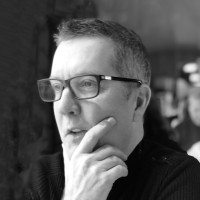 Talk Title: How We Use Physics: From Philosophy to Machine Learning
Talk Title: How We Use Physics: From Philosophy to Machine Learning
Date: 4th November 2021 at 17:00 (GMT)
Location: Blackett Lecture Theatre 1
Speaker: Dr. Brad Pietras
Watch the lecture recording
Abstract: The study of what we collectively call physics has simultaneously defined our world and challenged our place in it for nearly two and a half millennia. In this talk, I will attempt to demonstrate how, with your degree in Physics and a good amount of curiosity, you can explore such diverse topics as machine learning, economics, neuroscience, engineering, music, art, and even the origins of life on Earth. Physics is perhaps one of the most powerful and useful fields of study in all of academia. Like philosophy, it will force you out of your comfort zone as it has since the Ancient Greeks populated the Academy and the Lyceum. But it goes beyond raising questions and rhetorical arguments. With its own language, mathematics, you can explore and think in new and powerful ways and once you begin your journey, you will be unable to look at the world the same way again.
Biography: Previous to joining Rolls Royce as the Technology Strategy and AI and Machine Learning Business Development Director, Dr. Brad Pietras spent his twenty-year career at the Lockheed Martin Corporation reaching the position of Vice President of Technology and Vice President of UK Engineering and Technology. He has personally managed over $100M of R&D programs ranging from missile defense architectures to quantum computing. He successfully led several business development initiatives where he was responsible for relationships with investment partners, customer stakeholders, small business and corporate partners, media, academic institutions, and government agencies in the US, Europe, and Middle East. As a member of the Lockheed Martin Emerging Technology Fund, he provided expert advice on investments while serving on several corporate boards.
Dr. Pietras led the initiative that resulted in the founding of Applied Nanostructured Solutions, LLC and the introduction of advanced carbon-based materials in multiple Lockheed Martin products including the F-35 Joint Strike Fighter and the Juno spacecraft which successfully entered orbit around Jupiter in July of 2016. He also shares the patent for composites comprising of carbon nanotubes on fiber (US Patent 8,585,934).
In 2019, he received his Ph.D. in Computational Neuroscience from the University of Maryland’s School of Medicine. His thesis, titled Computational Modeling of Behavior and Neural Mechanisms of Decision-Making Using Reinforcement Learning Theory, was developed in collaboration with the Gatsby Computational Neuroscience Unit at University College London and explores the mathematical and neural foundations of value in decision-making and reinforcement learning.
Dr. Pietras also holds a Bachelor’s of Science degree in Physics from the Rochester Institute of Technology and a Master’s of Science degree in Neuroscience from the College of Engineering at Syracuse University. He was a visiting scientist at the National Institutes of Health in the United States, a visiting researcher at University College London, and is currently an Honorary Principal Research Fellow at Imperial College’s Institute for Security Science and Technology.
Talk Title: Using Physics for Innovation
Date: 18th November 2021 at 17:00 (GMT)
Location: Live online via MS Teams - watch the lecture recording
Speaker: Dr. Kate Oliver
Abstract: Do you enjoy solving problems? Do you thrive on variety? Do you love to learn? You might like a career in innovation consultancy.
All companies need to make choices: whether that’s how to solve a production problem, what new products people want, or what technology to work with in the future. For them, finding ways to do new things that will be of benefit to the business goes under the label of ‘innovation’.
At our small, friendly consultancy, Innovia Technology, we offer what we call 'holistic' innovation. We integrate groups of scientists, engineers, designers and more to help our clients — some of the world’s biggest, across industries from apparel to energy —understand their problems, explore options, and decide what to do. We find physicists have lots to offer across a range of sectors - whether that’s using fracture mechanics of snack food or modelling thermal transport across sportswear.
In this virtual talk, Kate Oliver, innovation consultant at Innovia Technology, will explain more about what the innovation sector is, what the day-to-day role is like, and what physicists in particular bring.
There will be an opportunity to ask questions following the talk, and you can also find out more on Innovia’s website: innoviatech.com
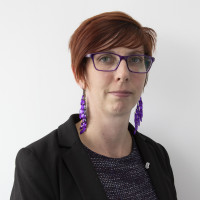 Talk Title: Physics in Industry at QinetiQ
Talk Title: Physics in Industry at QinetiQ
Date: 02 December 2021 at 17:00 (GMT)
Speaker: Dr Ruth Tunnell (Senior Principal Scientist - Energetics at QinetiQ)
Location: Live on MS Teams - watch the lecture recording
Abstract: QinetiQ is a global integrated defence and security company focused on mission-led innovation for defence, security and civil customers around the world. Operating at the leading edge of science and engineering, QinetiQ employs over ~ 5000 people and more than half are scientists and engineers. In this talk, Ruth will give an overview of some of the areas in QinetiQ where Physics plays a key role. Ruth is a Chemist and will also talk about aspects of her career which she has particularly enjoyed.
Biography: Ruth Tunnell (PhD CChem) is a Senior Senior Principal Scientist - Energetics at QinetiQ. She has worked in the field of energetics materials analysis at Fort Halstead in Kent, UK, since 2003. In 2018, Ruth was appointed as a QinetiQ Senior Fellow for outstanding and innovative achievements in the analysis of energetic materials, her national and international recognition, and the value of her work to MOD, QinetiQ and more widely. Ruth was a team leader for one of the energetics materials analysis groups at QinetiQ prior to her appointment to her current role. This includes continuing her interests in finding improved ways of analysing energetic materials and innovative approaches in the field of safety and suitability for service use of weapon systems.
Talk Title: QinetiQ
Date: 09 October 2020 at 12:00 (BST)
Speaker: Dr Ruth Tunnell (Senior Principal Scientist - Energetics at QinetiQ)
View the lecture recording
Talk Title: Using Physics for Innovation
Date: 16 November 2020 at 12:00 (GMT)
Speaker: Dr Kate Oliver
View the lecture slides
Abstract: Dr Oliver studied as a physicist and now works as an Innovation Consultant at Innovia Technology, Cambridge. Day-to-day, this role involves collaborating with specialists from many different disciplines, to realise different projects for global companies. During her time at Innovia, Kate has worked in many industries including food and beverage, surgical procedures, and sustainability. This talk will give an outline of how innovation consultancy works and what physicists bring to it - contributions which come not only through their research specialisms, but also through general physics knowledge and transferrable skills. Kate will also cover the career that led her here, which includes a MSci in 2009 from UCL, some time in science communication (at universities, a synchrotron, magazines and the BBC), and then a PhD in 3D printing shape changing soft matter at Bristol Centre for Functional Nanomaterials before starting work in consultancy.
Biography: After graduating from UCL in 2009, Kate went to work in science communication as an assistance press officer in France. Following some time as a freelance writer, Kate spent three years as communications, marketing and events manager for the faculty of engineering at UCL, before going back for a PhD at the University of Bristol. Following four years working with nanomaterials, soft materials and 3D printers, the now Dr Oliver started work at Innovia Technology, a front-end innovation consultancy based in Cambridge. Past projects have included modelling packaging, stabilising snack foods, improving surgical tools, and finding technologies for the highway of the future. Studied: MSci Physics at UCL 2004-2009 (specialism in nanoscience and semiconductors), PhD Physics University of Bristol (2014-2019) in thermoresponsive hydrogels with the Bristol Centre for Functional Nanomaterials.
Talk Title: Physics in the Start-up SynBioSys
Date: 22 February 2021 at 12:00 (GMT)
Speaker: Dr Gareth Tear
View the lecture recording
Abstract: Start-ups in the field of materials and hardware development have many challenges beyond the usual risks associated with starting a business. In this talk I will firstly discuss the physics I use in my day to day work as a director of the materials innovation start-up, Synbiosys Ltd., from thermodynamics to laser interferometry. This will lead into the second half, where I will go into detail about my experience in starting a company, and how the laboratory physics ends up playing a key role in business decisions. This becomes particularly acute in the defence industry, where industry, academia and government all play a part in manufacturing, researching and funding. Engaging with all three sectors is critical to achieving success where all three sectors have different, and at times competing, objectives.
Biography: I studied for my PhD in the physics department here at Imperial college 2012-2016, investigating the ballistic properties of birefringent crystals. After graduating I was a postdoc in the department studying the impact behaviour of concrete until last year. During my postdoc I was a founder of Synbiosys Ltd. (www.synbiosys.co), a materials innovation company, along with two other PhD graduates from Imperial College. I am now a director of Synbiosys Ltd., and teach part time in the Institute of Security Science and Technology.
Talk Title: You want to be an Entrepreneur?
Date: 08 March 2021 at 12:00 (GMT)
Speaker: Simon Galbraith
View the lecture recording
Abstract: Simon Galbraith is the CEO and co-founder of a 21-year-old software business employing about 400 people. On top of this he has had a significant role in creating multiple businesses worth silly money *despite* having a physics degree and PhD.
During his talk Simon will help you to consider whether, with your similar academic background, you should risk taking a similar path to his. Simon's presentation will have the same worrying flaws that you’ve become used to: survivor bias, feeble appreciation of the role of luck, contrived adversity stories and a tendency to paint himself as the hero ignoring the role that numerous others had in the successes.
Just about every lecture you’ve ever attended the person speaking is in some way being rewarded – either directly through a salary, to try to recruit you, to satisfy some obligation or to boost their kudos in their alma mater. None of these apply here. Simon gives no more than one talk a year and it takes him at least a day to prepare it. You have to ask yourself, as he is currently doing writing this blurb, why is he doing it? Should you risk attending to find out?
Biography: In 1999, Simon Galbraith co-founded Redgate Software with school friend Neil Davidson. Redgate primarily develops database and development tools for Microsoft professionals. In twenty one years, Simon has seen Redgate grow from a two-person firm run out of a spare room to today’s 400-person international outfit with hundreds of thousands of users.
Simon is in his forties and married with two daughters. He was state school educated until the age of sixteen, when he won a full scholarship to Charterhouse. He completed his undergraduate degree in Maths and Physics at Durham University, worked at Thorn EMI research labs, then went to the University of Cambridge to study for a PhD in (Shock) Physics. After graduating, he then worked at Shell International as a Petrophysicist in the Netherlands before returning to the UK to found Redgate.